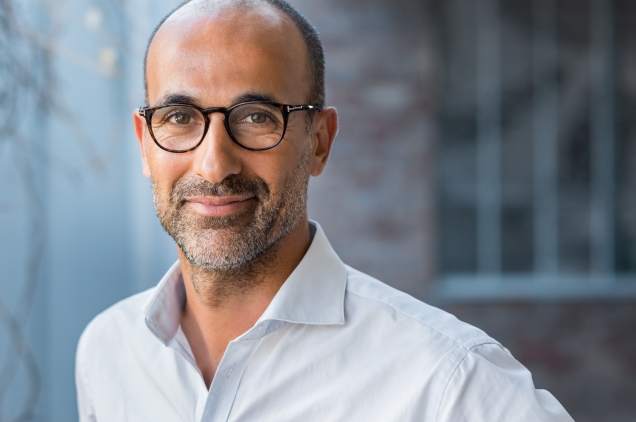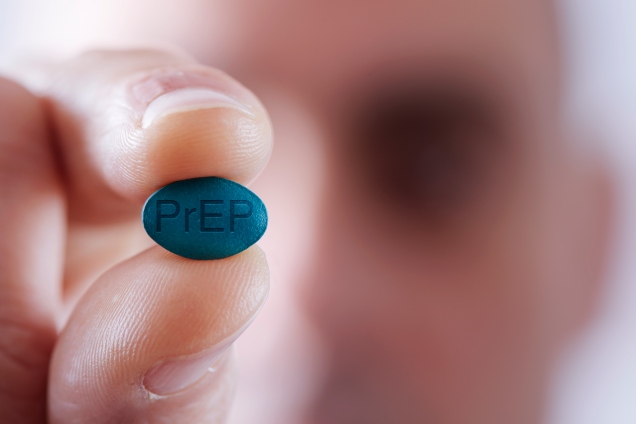Is HIV How you ID?
- Category: Living Well
- Posted On:
Author: Lauren Richey, MD, MPH, FIDSA, University Medical Center Internal Medicine and Infectious Disease Specialist and LSU Health Sciences Center Associate Professor of Medicine
Human Immunodeficiency Virus (HIV) is an infection that can cause serious damage to your body and immune system if not treated; however, you can be without symptoms for many years. The lack of symptoms makes people think they are healthy, and, as a result, they often do not seek out or request testing.

It is important to find out about the infection early because there are simple, effective treatments that can keep you healthy and prevent any damage to your immune system.
The only way to know if you have HIV is to get tested.
How Do I Get HIV?

HIV can be transmitted through:
- Sexual fluids during sexual activity,
- Mother to child during birth,
- Breastfeeding, and
- Blood.
Blood transmission can occur through blood transfusions and the use of intravenous (IV) drugs.
.jpg)
How is HIV/AIDS Diagnosed?
As mentioned before, early HIV infection often causes no symptoms and must be detected by testing a person’s blood for the presence of antibodies — disease-fighting proteins — against HIV. These HIV antibodies generally do not reach levels high enough to detect by standard blood tests until 1 to 3 months following infection and may take as long as 6 months to do so.
People exposed to HIV should be tested for HIV infection as soon as they think they may have been exposed to HIV.
When a person is highly likely to be infected with HIV and, yet, antibody tests are negative, a test for the presence of HIV itself in the blood is used. Repeated antibody testing at a later date, when antibodies to HIV are more likely to have developed, is often recommended.
Who Should Get Tested? Everyone!

There are a lot of misconceptions about HIV and how it is transmitted but anyone, regardless of race, sex, gender, sexual orientation, or educational level, who has had sex should be tested.
The Centers for Disease Control and Prevention (CDC) recommend that everyone between the ages of 13 and 64 gets tested for HIV at least once as part of routine health care. About 1 in 7 people in the United States who have HIV don’t know they have it.

People at higher risk should get tested more often. Sexually active gay and bisexual men may benefit from more frequent testing (for example, every 3 to 6 months).

If you’re pregnant, talk to your healthcare provider about getting tested for HIV and other ways to protect you and your child from getting HIV.
What are My Options for HIV/AIDS Treatment?
As with many other conditions, early detection offers more choices for treatment. Today, there are medical treatments that not only can slow down the rate at which HIV weakens the immune system, but may keep HIV in check so that the individual has a chance to live a normal life span.

Unfortunately, there is no cure for an HIV infection.
Talk with your healthcare provider for more information regarding various drug therapies for the treatment of HIV/AIDS.
Where Can I Get Tested?
We offer to test at University Medical Center New Orleans in the Infectious Disease Center(ACB building, Clinic 4C). There is also routine HIV testing in our Emergency Department. So if a medical condition or any risk of exposure to HIV brings you to the ED, you can get tested!
To find other testing centers near you, you can enter your zip code into: gettested.cdc.gov. Other places include your primary medical doctor, OB/GYN doctor, or at a community testing event.
How Can I Protect Myself Against Acquiring HIV?

- Use Condoms: Using condoms during sexual encounters is one of the simplest ways to prevent HIV transmission.
- Take PreP (pre-exposure prophylaxis): PreP involves taking daily medicine to prevent HIV acquisition and is very effective.
- Use Clean Needles: If you inject drugs, using clean needles, and never sharing needles, is another way to prevent HIV transmission.
- Talk to Your Partner: Before having sex for the first time with a new partner, you and your partner should talk about your sexual and drug-use history, disclose your HIV status, and consider getting tested for HIV and learning the results.
Where Can I get PreP? Where Can I Receive Treatment for HIV?

The HOP (HIV Outpatient Program) clinic nested in the Infectious Disease Center of the ACB building Clinic 4C provides both comprehensive HIV care and PreP.
Call 504-702-4344 to make an appointment or to refer a patient.
Click here for more HIV Resources.
About the Author

Dr. Lauren Richey, MD, MPH, FIDSA is an Internal Medicine and Infectious Disease specialist in New Orleans, Louisiana. She has more than 11 years of diverse experience with HIV and other infectious diseases.


